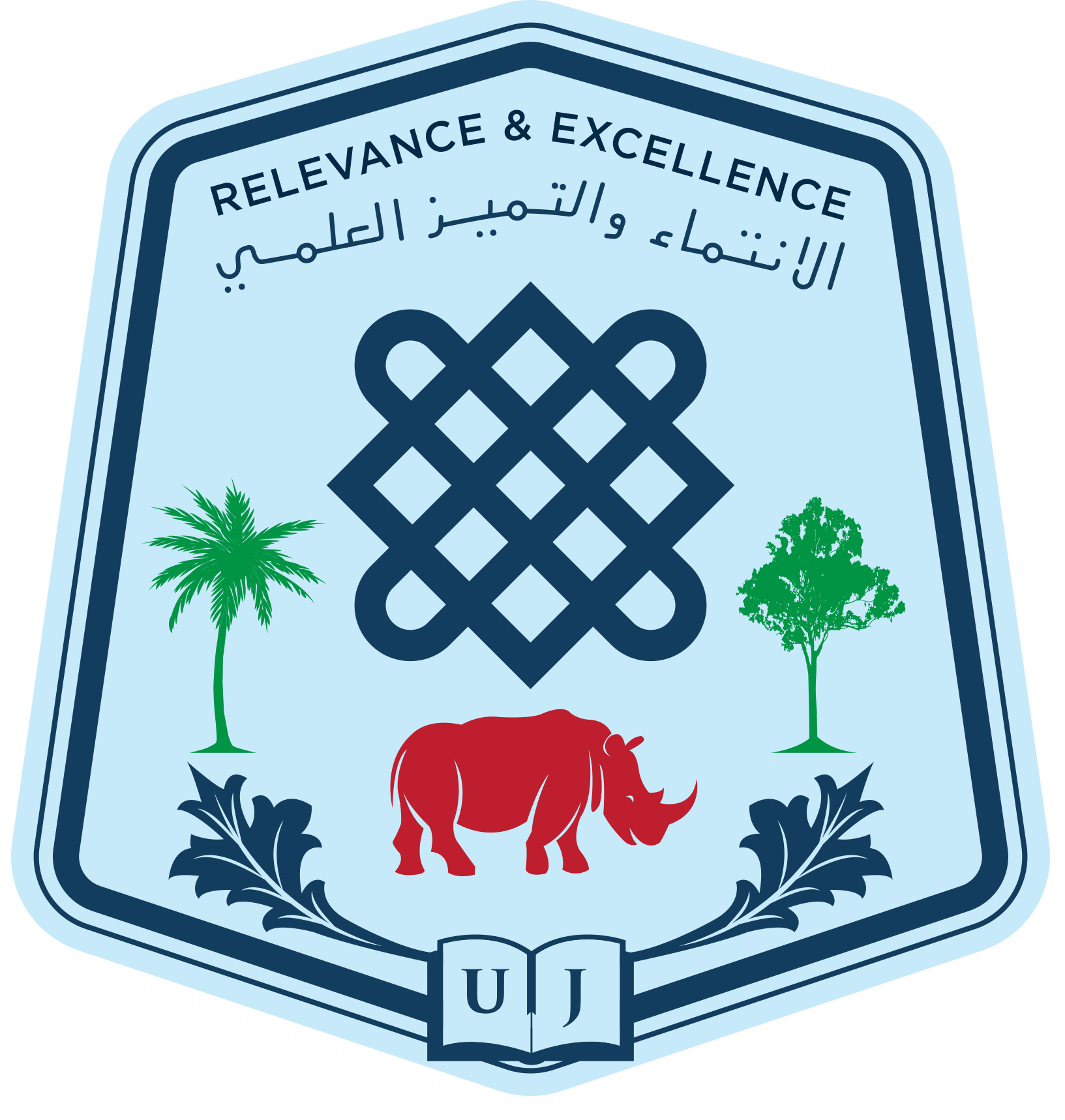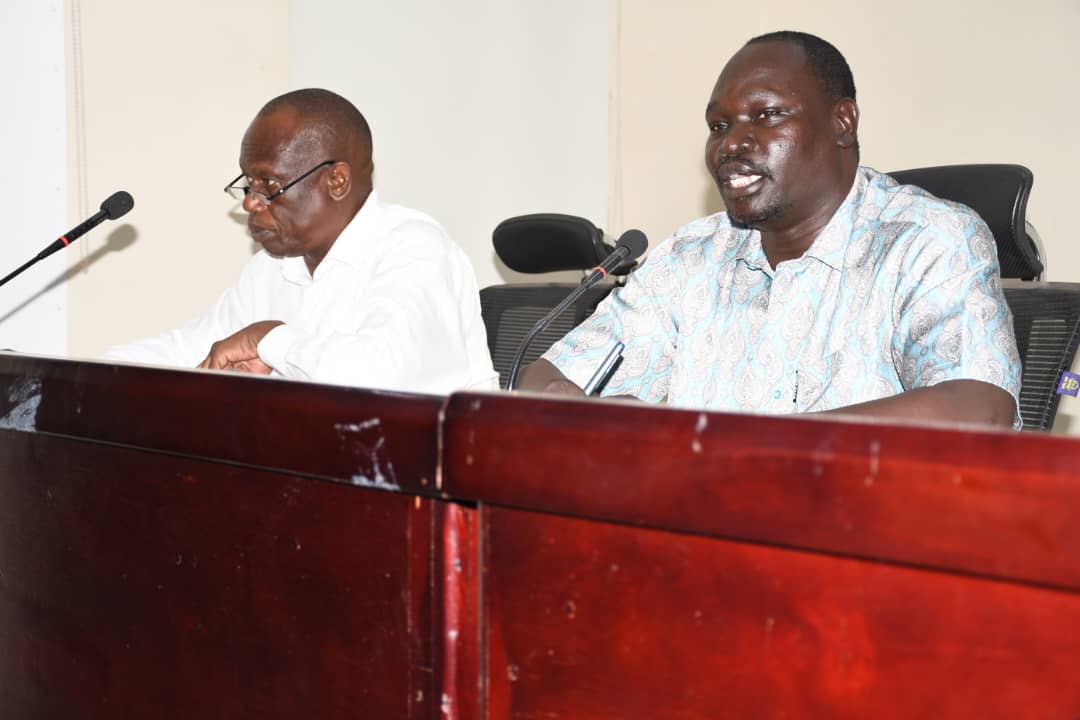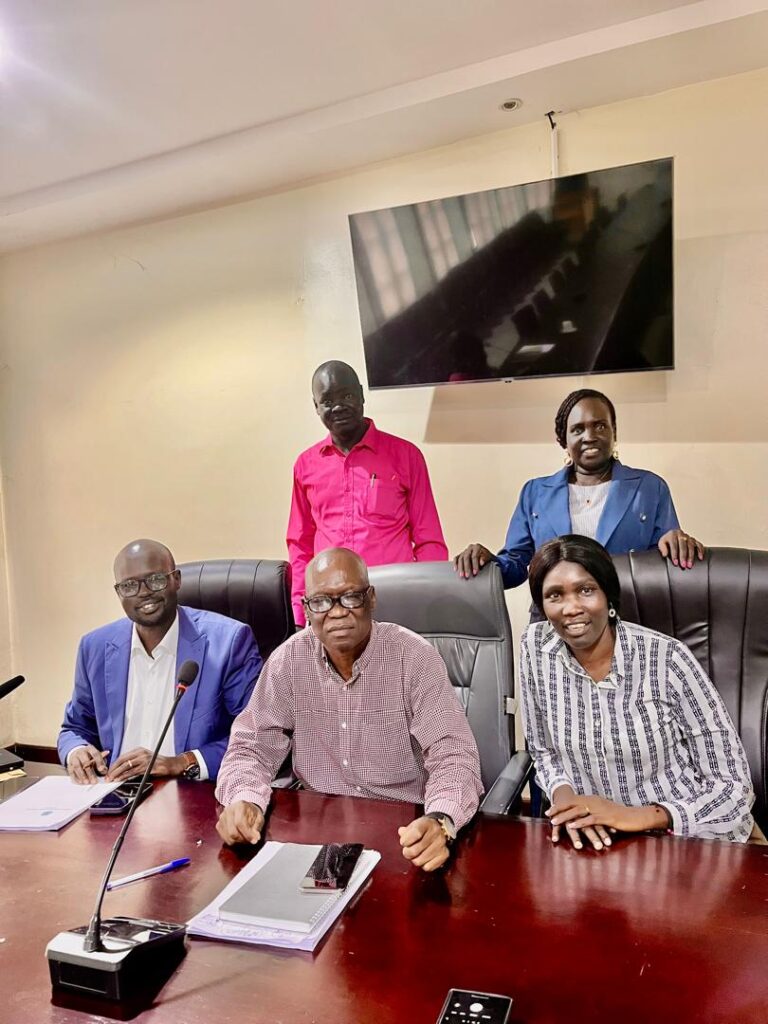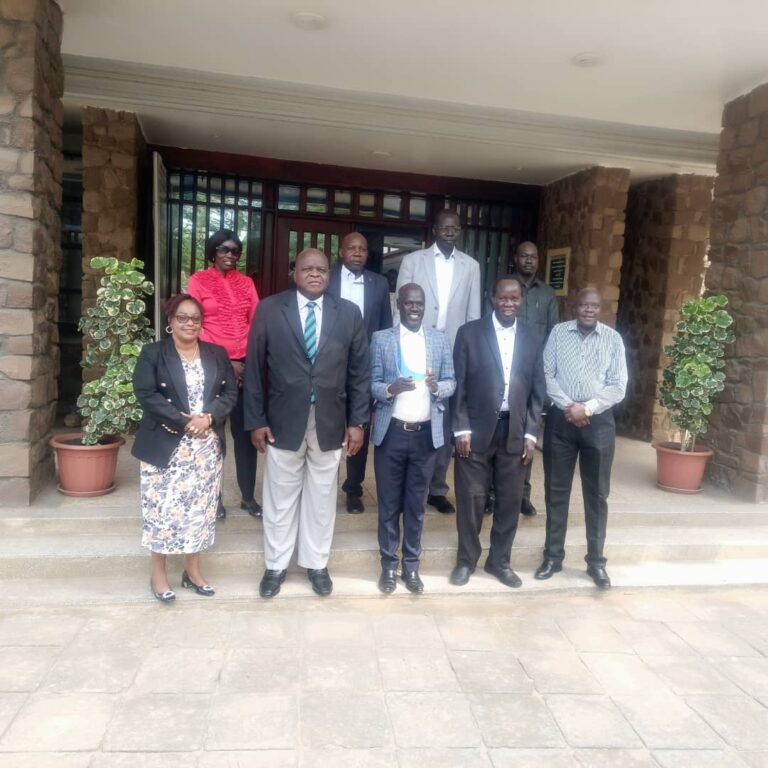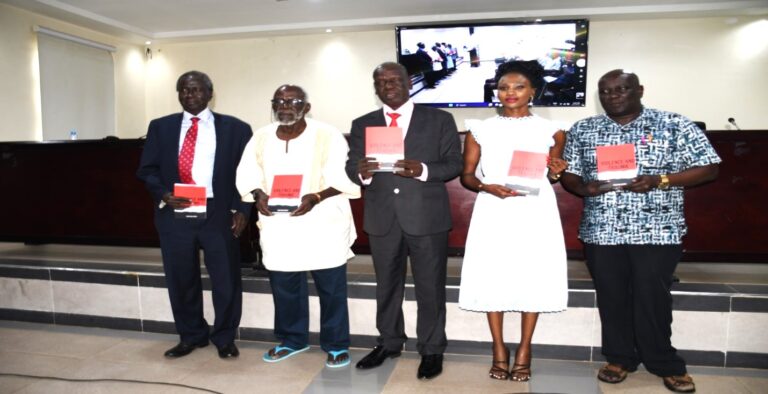On September 7th, 2024 in Senate Hall, the University of Juba’s Graduate College hosted its third(3rd) PhD Research Seminar that focused on Crafting PhD Research Problem Statement. This was done in response to demands from School of Business and Management students seeking guidance from Professors. Dr. Maxwell Adea, the Deputy Principal of Graduate College, highlighted the Programme’s inception and expressed gratitude to the college’s leadership and senior professors for their dedication to nurturing new scholars.
Dr. Abraham Kuol Nyuon, the Principal of Graduate College, in his opening remarks on behalf of Professor Robert Mayom Deng, Vice Chancellor of the University of Juba, warmly welcomed directors, deans, professors and Students to the PhD Research Seminar, emphasizing the crucial role of postgraduate students’ membership within the Graduate College. He noted that the seminar series has sparked interest among various Schools and Institutes to enhance their PhD curricula, envisioning that many will establish their PhD Programmes in the next few years, thanks to dedicated senior professors.
Dr. Nyuon further, encouraged students to work diligently, explaining that students must consistently engage with the Graduate College or risk being asked to reapply after self-suspending their Programmes. He also announced that first-year PhD students would be assessed through progress reports with recommendations to their supervisors on whether to continue or repeat the year.
During the seminar, Dr Augustine Bongo, the Coordinator of Postgraduate Programmes in the School of Natural Resources and Environmental Studies presented the Significance of a Research Problem Statement, clarifying that its essence remains consistent across academic levels, including diplomas, degrees, and PhD programmes. He emphasized that formulating a research problem begins with careful observation of the subject matter.
Prof. Salim Gibril Ahmed, the Director of the Centre for Distance Education, shared his experience as a former Dean of the Graduate College at the University of Bahri and evaluator of research proposals in the Ministry of Higher Education in Sudan, expressed his gratitude to Dr. Augustine for framing the discussion on research problem statements. He defined a research problem as a clear statement addressing a specific issue or gap in existing knowledge, highlighting the necessity for research and relevance to the field. He further stressed that a robust PhD research project requires thorough preliminary investigation, data collection, and interconnected experiences to build a solid foundation for the research.
Mr. Atem Madut, a PhD candidate from the School of Business and Management presented his research proposal on Recruitment-Section Policy and Organizational Performance: A Case Study of SSPDF. Mr. Acuil Malei Aliap, a PhD candidate from the Political Science Department in the School of Social and Economic Studies presented his Dissertation on Hydro Politics and Foreign Policy: Examining the Essence of Water Resources among Nile Basin Countries. He gave an outline of his dissertation that was structured into six chapters. His presentation detailed the first chapter, covering the background, problem statement, objectives, research questions, significance, and conceptual framework. Chapter Two addressed the literature review and theories related to his topic, followed by chapter three, which outlined the research methodology and study area. Chapter four presented the data and its interpretation, while chapter five highlighted the findings and chapter six wrapped up with recommendations and conclusions.
After the Q & A Session, Dr. Abraham in his closing remarks appreciated the guests and the professors for their insightful presentations and Discussions, as well as the PhD students for sharing their research work. He stated to Postgraduate Students and the two PhD candidates who presented that, constructive criticism is a part of the academic journey aimed at fostering growth and improvement, and encouraged them to embrace this process, as many successful scholars have navigated similar challenges.
It is key to understand that the quality of your research stems from your efforts and perseverance, not just institutional standards. Collaboration and adherence to university policies are necessary for success, and he urged those students facing challenges, particularly regarding registration and fees, should communicate openly with the Graduate College. Together, let’s commit to our academic obligations for a fruitful journey ahead. Thank you for being a part of this seminar, and he declared the closing of the Seminar on behalf of Professor Robert Mayom Deng, the Vice Chancellor of the University of Juba.
